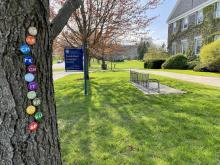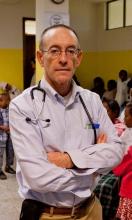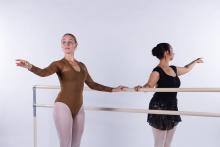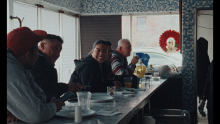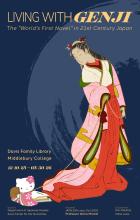
Living with Genji: The "World's First Novel" in 21st Century Japan
Davis Family Library, Upper Level Display Cases
The students in JAPN 290 (“Reading the Tale of Genji” in English”) and Prof. Otilia Milutin (Japanese Studies) are cordially inviting you and your students to view their exhibit, “Living with Genji: The World’s First Novel in 21st Century Japan.” The exhibit features a selection of objects, artwork, movies, and manga inspired by the 11th century classic The Tale of Genji by Murasaki Shikibu. Our exhibit aims to showcase a few selected items that speak both of the tale’s enduring legacy in traditional Japanese arts, and, equally important, of its contemporary reiterations, be they manga and movies adaptations or commercial, consumer-oriented products such as mascots, stationary, fabrics, and other everyday objects. Through our exhibit, we hope to demonstrate how a millennium old classic lives and thrives today in contemporary Japan.
Middlebury College
Open to the Public

